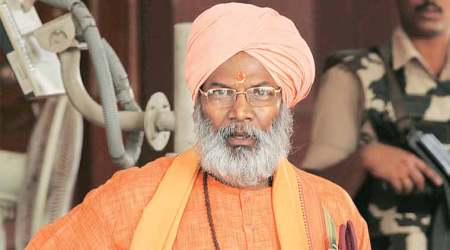 Deep Thinking explores man-machine contests — and collaborations — from the viewpoint of an interested participant.
Deep Thinking explores man-machine contests — and collaborations — from the viewpoint of an interested participant.
Book: Deep Thinking
Author: Garry Kasparov
Publication: Hachette
Pages: 287
Price: Rs 599
In 1956, the Manhattan Project scientists at Los Alamos were delivered the world’s biggest computer. MANIAC 1 was not named in a manner calculated to inspire confidence, but it was built on the computing model described by John von Neumann at Princeton, ran off 2,400 vacuum tubes and could store programs in memory, a tremendous feat at the time. It was destined to improve thermonuclear weapons but when it arrived, writes Garry Kasparov, the scientists did not set it to solve criticality problems. Instead, to put it through its paces, they programmed it to play chess. Its game was called “anti-clerical chess” because the system memory could not accommodate the standard eight by eight chess board — it was reduced to six by six by dropping the bishops.
MANIAC 1 lost to experts but trounced a rookie volunteer. This unsung martyr was the first human victim of computers, foretelling job losses still half a century in the future, when robots would displace production line and call centre workers and make surgeons uneasy in their operation theatres.
“Few people in the world know better than I do what it’s like to have your life’s work threatened by a machine,” writes long-reigning world chess champion Garry Kasparov. He engaged with chess-playing machines when many grandmasters avoided contests with them, because no one knew what would happen if the machine won. Would the sponsorships dry up? Would people stop playing chess because no chance of winning remained?
But Kasparov appreciated why scientists and computer manufacturers keep making chess machines and programs: the eight by eight board and the strict laws which govern it provide a clearly defined sandbox for testing machine intelligence. The enduring popularity of the game, the distant descendant of the game of dice in which Draupadi was gambled away, ensures that experiments involving it get breathless coverage in the press. Besides, it turned out that losing to machines does not deter humans any more than losing to the Kauravas. Millions of people play chess regularly the world over, despite the rise of algorithms which can beat them in minutes.
Deep Thinking explores man-machine contests — and collaborations — from the viewpoint of an interested participant. Almost all the literature on the subject owes to computer scientists, science fiction writers and coders, the people on the side of the machine. Kasparov brings us a unique account from the human corner of the ring, including the first first-person account of his clash with IBM’s Deep Blue. The contest was followed as obsessively on live TV as the Spassky-Fischer match in Reykjavik in 1972, which seemed to crystallise the superpower rivalry of the Cold War. The battle with Deep Blue looked like a simulacrum of an imminent war between neurons and neural networks.
“When I sat across from Deep Blue 20 years ago, I sensed something new, something unsettling,” writes Kasparov. “Perhaps, you will experience a similar feeling the first time you ride in a driverless car, or the first time your new computer boss issues an order at work.” Actually, we felt it long ago when we first made an STD call, bypassing the operator, or got in an elevator without an operator for the first time, punched a button and got where we wanted to go. Not much novelty there, really, except that Deep Blue was lots smarter than an elevator. But it wasn’t human.
Kasparov finds machine chess “ugly and inhuman”. There is something clinical about a computer’s approach, because it is essentially conducting a maximisation exercise. Unlike a human, it is indifferent to winning and losing and has no reputation to protect. That makes a huge difference to the state of play, and machines are also programmed to approach the chessboard differently.
Algorithms are generically of two kinds, brute force and pattern-seeking. The first tries all possible solutions until it finds the right one, like a random attack on your Google password. The second focusses on probable solutions, like a dictionary attack on the same password. It is a bit closer to how the human mind works, avoiding the grunt labour of solving for all possible outcomes. As in life, it makes a big difference in chess, where the first four moves open up 300 billion possibilities.
A techno-optimist, Kasparov believes that computing democratised chess. Players no longer had to find a club and a coach, carry around a heap of notebooks or raise an army of seconds to research their opponent’s style. A cheap laptop can download games immediately after they are played in tournaments thousands of miles away. He attributes the rise of Indian chess partly to easy access to chess programs.
However, one can’t extrapolate from here to a general optimism about digital technology. Chess machines are non-threatening because they only play chess. Most artificially intelligent entities are ‘expert systems’ which excel in only one thing — gaming, translation, driving, climate modelling or the search for the biggest prime number. They are limited to that role, which is why in real-world situations, the most amazing computers appear to be no more intelligent than the houseflies you swat irritably, and successfully. Scientists are quite happy with such limited systems, but humanity dreams of building a machine in its own image, and assuming godlike status. But if the machine becomes the new god instead, humanity may discover urgent reasons for reappraising the adjective ‘disruptive’, which has become a positive epithet, and roll it back to its original, frightening, sense.

